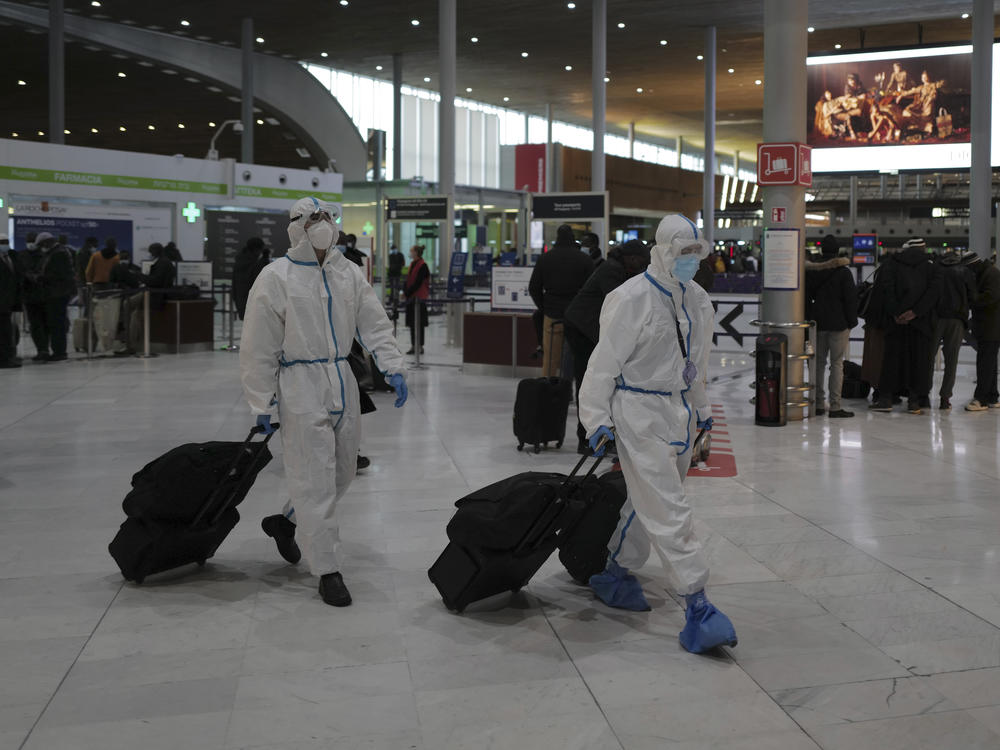Section Branding
Header Content
U.S. Issues More Than 115 'Do Not Travel' Advisories, Citing Risks From COVID-19
Primary Content
The U.S. State Department has vastly expanded its "Do Not Travel list," issuing new Level 4 advisories for more than 115 countries and territories this week. The agency cites "ongoing risks due to the COVID-19 pandemic."
The U.S. Do Not Travel list now includes Canada, Mexico, Germany and the U.K. A Level 3 warning is in place for a smaller group of nations, such as China, Australia and Iceland. Japan is also on the Level 3 list, despite a worrying rise in new coronavirus cases there.
Just a week ago, only 33 countries were on the U.S. Do Not Travel list, according to a cached version of the advisory site. But the State Department warned on Monday that the list would soon include roughly 80% of the world's countries.
More than 150 highest-level travel advisories are in effect — more closely reflecting guidance from the Centers for Disease Control and Prevention, the State Department says.
The CDC's own travel health notices also use a four-tier warning system. For many countries newly added to the State Department's Level 4 list, the CDC cites "a very high level of COVID-19."
As of last week, Brazil and Russia were two of the only large COVID-19 global hotspots on the State Department's most serious warning list. They're now joined by India and virtually all of Europe — places that have seen alarming spikes in new cases.
Bhutan is the only international destination designated as Level 1 — "exercise normal precautions" — on the State Department's travel advisory list.
Sixteen countries are categorized as Level 2 — meaning travelers should exercise increased caution when visiting places such as Thailand, Vietnam, South Korea, Belize and Grenada.
Many of the new or updated Do Not Travel notices cite high levels of coronavirus transmission in the relevant country. But the State Department says it also takes other factors into account, from the availability of coronavirus testing to any travel restrictions the countries might have against U.S. citizens.
In roughly 35 countries or destinations, the CDC says, details about the level of COVID-19 risk are unknown. The health agency urges Americans to avoid traveling to those spots, which include Afghanistan, Nicaragua and the Solomon Islands.
Regardless of a particular country's advisory status, the State Department wants all U.S. citizens to reconsider any travel abroad.
"The COVID-19 pandemic continues to pose unprecedented risks to travelers," the agency said.
More than 3 million people have died from COVID-19 worldwide, according to the World Health Organization. Nearly 144 million coronavirus cases have been reported globally, according to data compiled by Johns Hopkins University.
Copyright 2021 NPR. To see more, visit https://www.npr.org.

